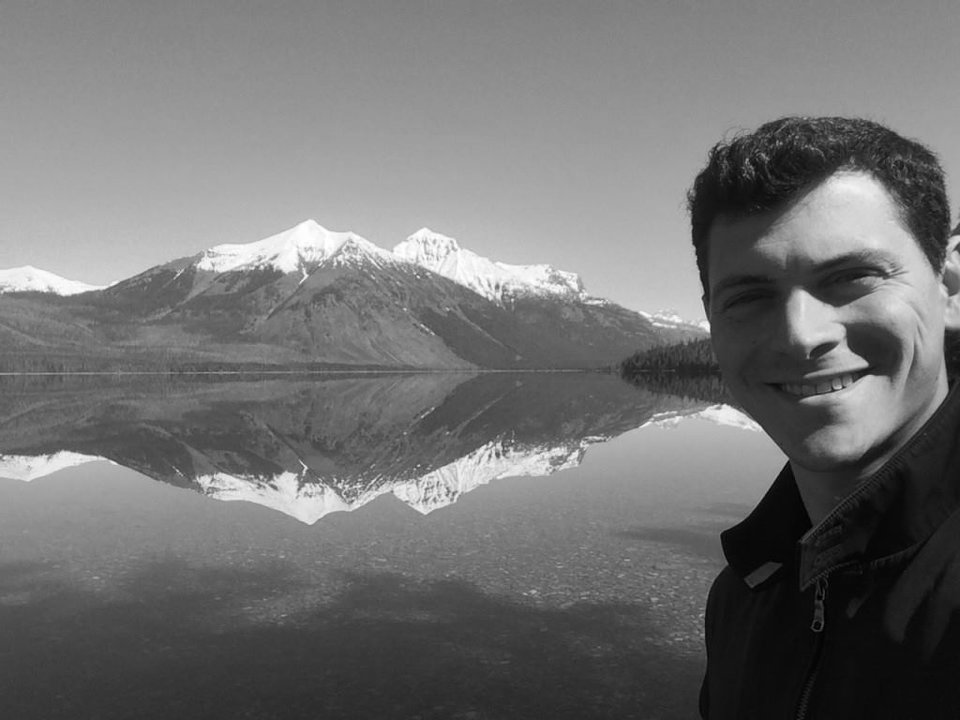1) Travel allows one to stop acting like a new person and to start becoming one
The unfamiliarity of travel jolts you out of your familiar patterns. Who we are on the road is different from who we are at home. I don’t know if who we are on the road is closer to our real self than who we are at home—having changed so much in my life, I’m not sure if the idea of a real self is all that useful, honestly. But I can say that being on the road gave me the opportunity to stop faking confidence and start building it; to stop acting like a new person and to start becoming one.
2) Being interesting is not something interesting people aspire to
Just as confident people don’t talk about how confident they are, and funny people don’t tell you how hilarious they are, being interesting is not something interesting people aspire to. I’ve met my share of interesting people on the road—starting in that cooking class in Thailand—and what I thought of them was not something they were actively striving to cultivate. Rather, being interesting was a quality they carried with them; it was part of who they were, a character trait. It came out in the stories they told, in the way they carried themselves, in the confidence from pursuing a passion whether or not other people gave a damn.
3) There have always been culturally sanctioned forms of travel
Society uses scripts—patterns of action stored in our cultural memory—all the time, to make sense of the stories of our lives. We all understand, “I’m going off to college,” or “I’m going on vacation”—those are culturally sanctioned ways of leaving your home. In the Middle Ages, the scripts were different—maybe “I’m going on a pilgrimage to the Holy Land”—but they served the same function. Pilgrims were recognizable figures. It’s not necessarily that everyone knew one—but everyone knew about them, had read stories of them and seen depictions of them. They demonstrated what travel looked like; talking about them was a way of talking about what it meant to leave home.
4) Learning to go with the flow is the most important part of travel
Learning to go with the flow is the most important part of travel planning. Travel is about letting things unfold and happen naturally. It’s better to see fewer attractions and go deeper into a city or a region than to cast a wide net and go shallow. Going with the flow is how you get to know people and places better. It’s how you avoid the stress and expense of constantly being on the move from place to place and attraction to attraction. That magical, romcom serendipity that people dream of on the road—that moment when a local befriends you or you stumble upon the most charming café or hole-in-the-wall restaurant—that stuff only happens when you let the day unfold without trying to assert your will against it.
5) Getting scammed on the road is the result of being intrepid
With time, one comes to realize that if you don’t occasionally get scammed on your travels, you aren’t pushing yourself enough. Scams happen to confused people in unfamiliar places, people who don’t take preapproved tours and deviate from their guidebooks. Going to unfamiliar places and getting a bit lost was exactly the elsewhere I was looking for, even if that meant taking on some risks. Of course, I’d never recommend letting your guard drop completely and putting yourself in a situation of real danger. But most scam artists are trying to wring a few bucks out of a tourist to feed his family. A bit dishonest, but basically harmless. If you don’t occasionally run into someone like that, you’re traveling in a bubble. Or you’re not even traveling at all—you’re vacationing.
6) Life transformations only seem sudden in retrospect
We change all the time. But the thought that we can pinpoint that change to a single, story-ready moment is something out of fiction. “Aha” moments are a rarity. Learning and change—even mind-altering learning and radical change— aren’t spontaneous, and don’t happen all at once. Only with distance, as we look back at the narrative of our existence, can we tell there was a moment when our old self disappeared, and a new person emerged, with new eyes and perspective. But even that moment wasn’t when the change occurred, it was simply when we first noticed it. This is the nature of evolution. Gradual, imperceptible change that accumulates over time until our first memory bears no resemblance to what we are looking at in present day.
7) Travel burnout is often the result of over-idealizing the journey
Burnout can seem like the ultimate in ingratitude. What’s there to be tired of? You have complete freedom. You’re on an adventure that most people only dream of taking. You are seeing famous attractions, meeting people from all over the world, trying new cuisine, learning new languages. You don’t have any responsibilities. You get to do whatever you want, whenever you want. There’s nothing to get in your way of any of your craziest desires or whims. And what, you’re over it? So you’ll ask yourself, like I asked myself: Why am I not enjoying this more? What’s wrong with my trip? What’s wrong with me? The truth is that our anticipations, and our memories, have a way of holding only the most striking parts of an experience—the parts that don’t cause burnout.
8) Staying longer in a place allows you to give back to it
If you fall into the tourist traps, or even follow the well-worn paths of hostel-living backpackers, you can appear to the local population kind of like locusts. You arrive seasonally in a swarm, create long lines and overtake once quiet streets, and when you leave everything is a mess and you’ve left nothing positive behind (besides tourist dollars) from your visit. You’ve only consumed. You’ve only taken from them. When you stay awhile, you balance those scales. Your relationship with the locals becomes more symbiotic, and you even have a chance to make a few honest-to-goodness friends.
9) Nomadic Matt’s “19 Lessons from a Decade of Travel”
1. It’s not that hard.
2. You learn a lot of life skills.
3. You are never alone.
4. You meet some of your closest friends traveling.
5. Relationships come and go on the road.
6. But chase the ones you like.
7. It’s good to try new things.
8. Be adventurous.
9. There is no such thing as a mistake.
10. Don’t be cheap.
11. That being said, don’t be wasteful.
12. Drop the guidebook.
13. It’s never too late to change.
14. Relax.
15. Learn more languages (seriously).
16. Wear more sunscreen.
17. People are good.
18. There’s no such thing as must-see.
19. Just go.





